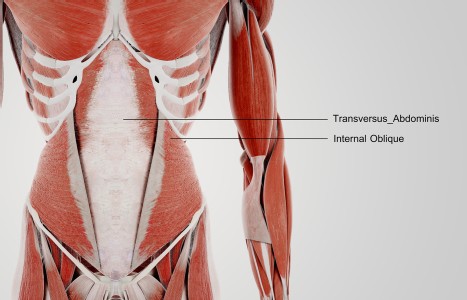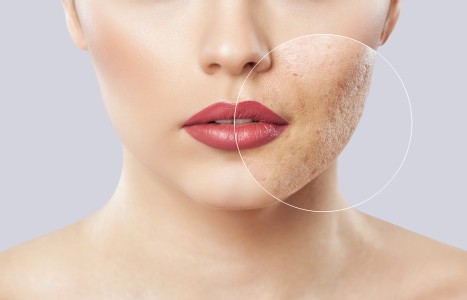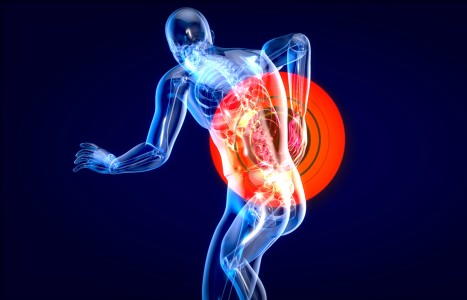TrA-2, my primary needle location, I needle 95% of the time and I think it works the best. You’ll know you have the right point location when you discover the muscle twitching when applying electric stimulation.
AAOM Testifies before White House CAM Commission
On October 5, David Molony, Dipl.Ac., LAc, executive director of the American Association of Oriental Medicine, provided valuable testimony before members of the White House Commission for Complementary and Alternative Medicine Policy. The occasion marked the fifth time he has spoken before the Commission since it was created by President Clinton in March 2000, and highlighted the AAOM's repeated efforts to ensure that the concerns of the acupuncture and Oriental medicine profession are presented to (and recognized by) the federal government.
Mr. Molony's testimony began by emphasizing the long history of acupuncture and Oriental medicine abroad, followed by its rapid growth as a respected field of health care in the United States. In just over a quarter-century, laws providing legislative recognition of acupuncture and Oriental medicine practitioners have been passed in more than 40 states, with continued progress being made in the states that currently do not have such laws in effect. He also related the current relationship between practitioners of traditional Chinese medicine and conventional medicine in China, and how those systems are able to exist peacefully with one another, a situation that is not always as amenable in the U.S.
"The providers of these primary care services include nearly three-quarters of a million doctors of conventional medicine and over a half million doctors of traditional Chinese medicine," Molony said. "These two different systems of medicine coexist harmoniously because Chinese citizens have equal access to, and a basic understanding of, both symptoms. Their conventional medical doctors were raised in a country familiar with its own tradition, while their doctors of traditional medicine have training that encompasses an evolving system of medicine that is rounded out with a year or more of conventional diagnostic and therapeutic principles and procedures.
"Both professions are thus reasonably well-prepared to help patients make informed decisions about their health care options. We highly recommend looking at the Chinese model for the harmonious coexistence of traditional and modern, complementary and alternative medicine and non-CAM therapies and professions."
The main thrust of Mr. Molony's testimony was on educational criteria in complementary and alternative medicine practices, specifically on criteria related to Oriental medicine. As it currently stands, there are disparate education levels for acupuncture training among conventional fields of medicine in the U.S. These disparities can lead to a variety of unwanted outcomes, ranging from a patient having a negative experience with acupuncture and deciding not to undergo further treatments, to other, more serious consequences.
Molony assured the Commission that the AAOM will do its best to work with practitioners from all aspects of health care to create an elementary standard for Oriental medicine training, and that it will not be swayed by interprofessional politics or by parties that have a financial interest in developing such a standard.
"The AAOM is working to bring all professionals to the table to begin a dialogue which will create a basic entry-level training standard of Oriental medicine modalities across the board within all fields of medicine in this country. Nobody is sure how this will look when it is finished, but any neutral party can be sure that those with financial interests in training any particular groups (or) practitioners should not be a participant in the discussion. The discussion and development of these criteria must be disentangled from the politics of the educational processes of our disparate fields and evaluated by those with lengthy clinical expertise from those fields so as to provide input from the patients' perspective, since it is the patient who is at risk."
Mr. Molony continued by offering AAOM's assistance in working with the Commission to increase public safety and improve professional performance of Oriental medicine practitioners at both state and national levels.
"This sort of seed of change is something that the White House Commission has been commissioned to do, and would require a small but vigorous stimulus to germinate the beginning of a major change in the field of Oriental medicine. This may work to provide a template for further change within CAM · The AAOM would be proud to work with the Commission to help in whatever way we can in order to enhance public safety and professional efficacy in the patients' behalf."
After offering the AAOM's support, Mr. Molony concluded his testimony by thanking the Commission for its efforts to improve the quality of health care in America.
Full Text of Commission Meeting Available for Download
Transcripts of the White House Commission's prior meetings (including testimony from Mr. Molony and other advocates of acupuncture and Oriental medicine) can now be accessed for free via the Internet. To read the full text of each meeting, visit the Commission's website (www.whccamp.hhs.gov) and click the "Meetings" tab.


